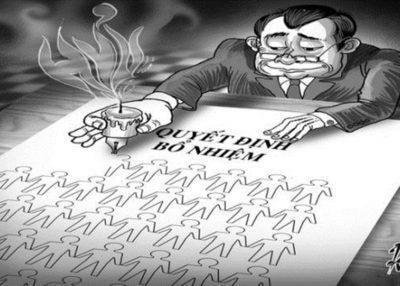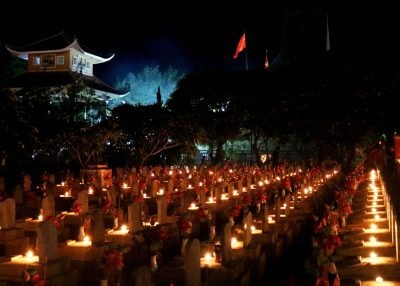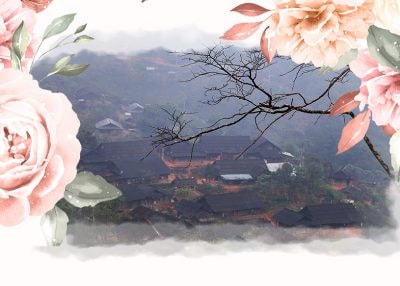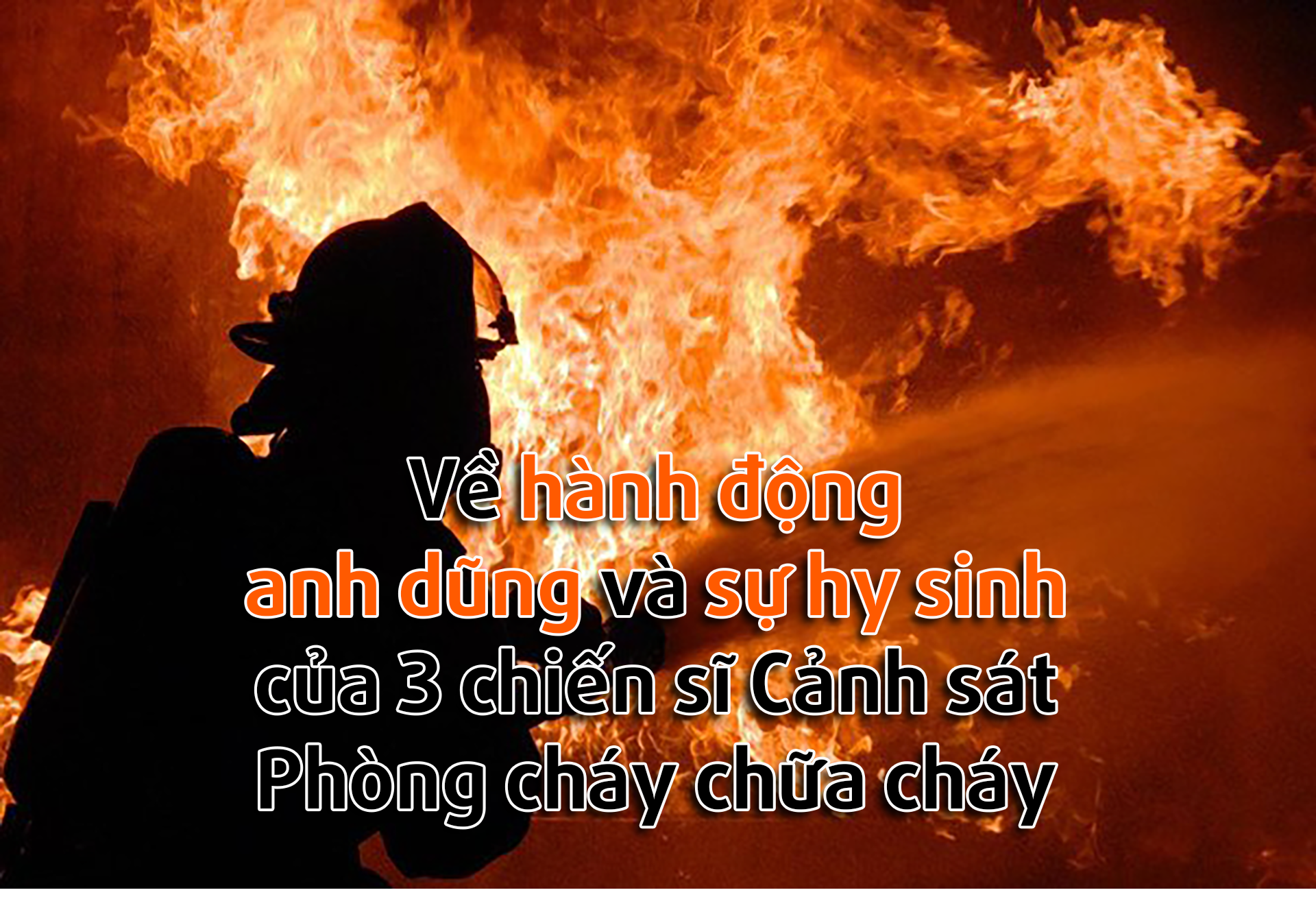
Yesterday afternoon, a fire broke out at a karaoke bar in Quan Hoa Ward, Cau Giay District, Hanoi. Immediately, the Fire Prevention and Rescue Police Team of Cau Giay District Police promptly deployed fire fighting operations. The fire was controlled, 8 people were rescued, but sadly, 3 police officers died while on duty. This is truly a great loss to the family, the country and the people.
Faced with such heroic sacrifice, the online community expressed deep sorrow. President Nguyen Xuan Phuc also sent his condolences to the People's Public Security force and the families of the three officers and soldiers.
However, what is even more strange and sad is that some newspapers used the two words "died" when publishing news articles, making the sentence insensitive and impolite.
It is known that the reporters did not mean to write like that, and the above newspapers later edited the headlines, but this is really an irresponsible negligence, from the reporters to the editorial board need to learn a lesson and correct it promptly.
To die means to die in vain, in vain. This word has a neutral character when talking about death. It does not have the ironic meaning like “toi mang”, but it does not express a death with noble meaning, and worthy of honor like the word “sacrifice”.

3 firefighters defied danger, willing to risk their lives to save 8 people, clearly a noble sacrifice.
The word "sacrifice" is not neutral like the word "die", but it expresses the meaning of dedicating one's body and life for a just cause to do something beneficial for the community and society.
The word “sacrifice” is made up of two words 犧 hy and 牲 sinh. In which:
Hy: Noun for purebred animals used for offerings.
Sinh: Noun for livestock used for sacrifice.
Thus, with the original meaning, when "sacrifice" and "birth" are combined, it creates the meaning: A pure-colored animal used to sacrifice to gods or to swear an oath.
In the book Zhou Li, Tian Di Guan, chapter Mu Ren, there is a sentence: 凡祭祀共其犧牲(周禮地官牧人) Pham te tu cong ky xi xi (All worship must use sacrifice). This word is associated with the story of King Thanh Tang (成湯; 1847 BC – 1760 BC) – the founder of the Shang Dynasty in China. When he destroyed the Xia Dynasty and became king, the country suffered a great drought for 5 consecutive years. He immediately went into the mulberry forest to pray for rain. He cut his hair, trimmed his nails, and sacrificed himself in front of the temple to pray for rain. The people were very grateful for that. After that, it rained heavily for thousands of miles.
From the story of King Thanh Thang sacrificing himself to pray for rain, later people used the word "sacrificing" to refer to someone who, for a righteous cause, is willing to sacrifice himself to do something beneficial for the world.
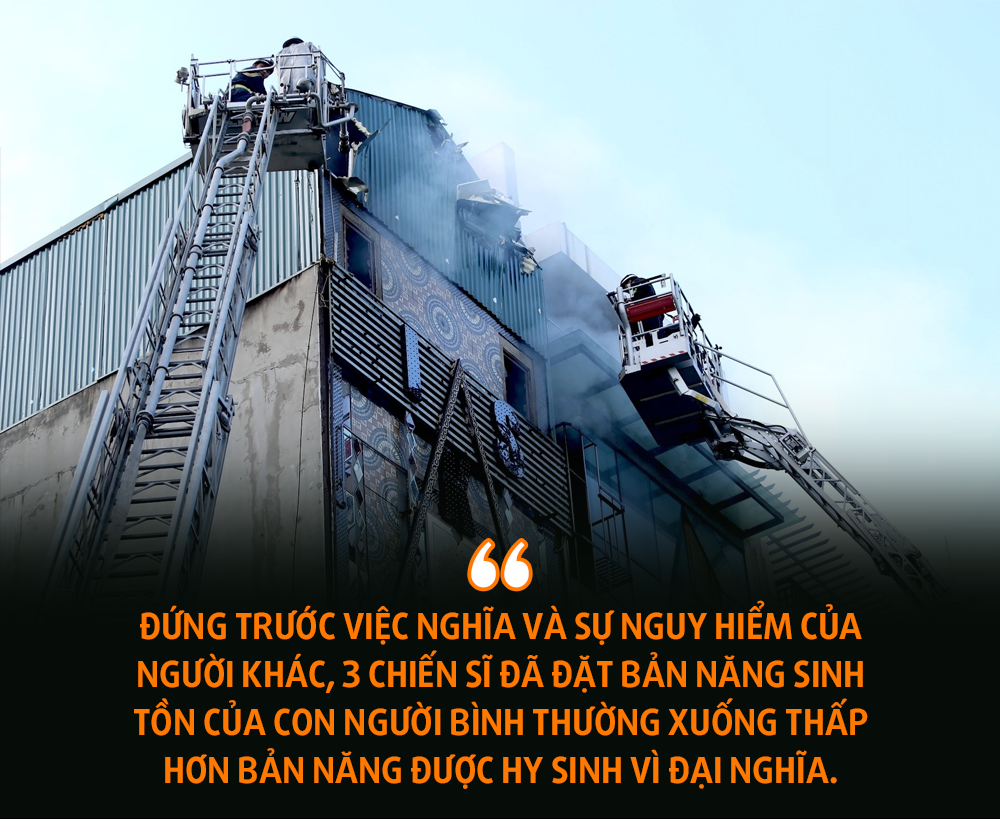
As humans, everyone wants to live and does not want to die. That is a type of instinct called survival instinct. It always exists, and surpasses all other instincts that are available in each of us. And when we face danger or are close to death, this survival instinct arises extremely strongly and urges people to find every way to find a safe zone. However, facing the righteousness and danger of others, the 3 soldiers put the survival instinct of normal people lower than the instinct to sacrifice for a great cause. Their sacrifice deserves to be honored by society and admired for thousands of years.
"Remembering the heroic and heroic spirit of the past,
May heroes rest in peace forever.
Article: Van Thang
Illustration: Document





